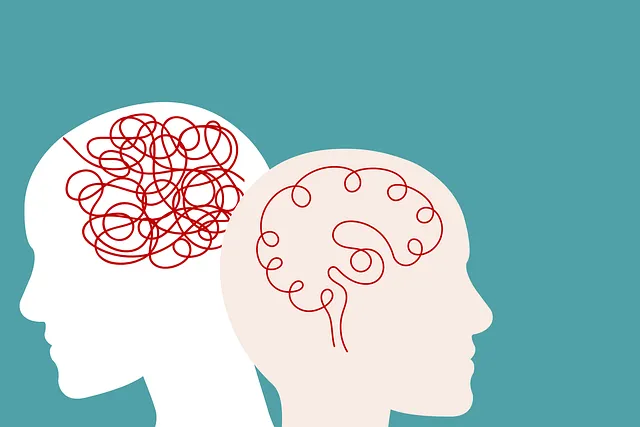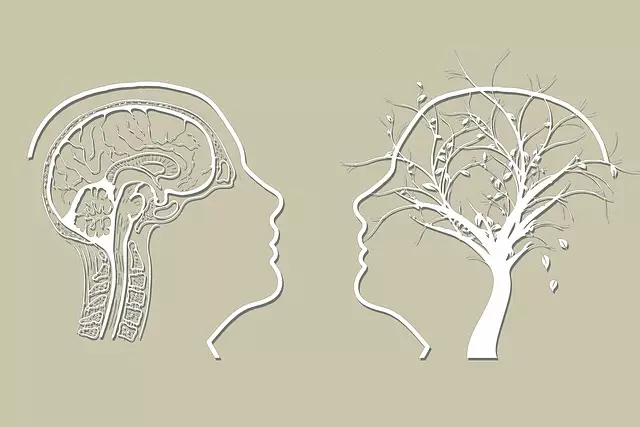Kaiser Permanente behavioral health centers prioritize cultural competency as a cornerstone of high-quality patient care, recognizing its vital role in addressing mental health concerns across diverse populations. Through comprehensive training programs, these centers educate healthcare providers on navigating various cultural backgrounds, enhancing communication and empathy. This proactive approach, led by industry standards set by Kaiser Permanente, includes case studies, role-playing, conflict resolution, and self-care strategies, ultimately improving patient satisfaction and outcomes while fostering an inclusive environment. Regular feedback sessions and measurement of training impact ensure the Kaiser Permanente behavioral health center's cultural competency programs remain effective and tailored to serving diverse communities.
Healthcare provider cultural competency training is no longer a nice-to-have, but an essential component for modern medical practice. As healthcare becomes increasingly diverse, understanding and respecting patient cultures is crucial for delivering quality care. The article explores this vital topic through several key sections: from the necessity of cultural competency to a model program at Kaiser Permanente Behavioral Health Center, effective training components, and measuring success. Discover how leading institutions like Kaiser Permanente are setting standards for superior cultural sensitivity in healthcare.
- Understanding Cultural Competency in Healthcare: A Necessity for Modern Practice
- Kaiser Permanente Behavioral Health Center: A Model for Cultural Sensitivity Training
- Key Components of Effective Cultural Competency Training Programs
- Measuring Impact: Evaluating the Success of Cultural Competency Initiatives at Healthcare Providers
Understanding Cultural Competency in Healthcare: A Necessity for Modern Practice

In today’s diverse and interconnected world, cultural competency has become an indispensable aspect of modern healthcare practice. Understanding and respecting different cultures, traditions, and beliefs is no longer a nicety but a necessity for providing quality patient care. At Kaiser Permanente behavioral health centers, this principle guides every interaction, ensuring that self-care practices and mental health awareness are accessible and tailored to each individual’s unique cultural context.
Cultural competency involves recognizing and appreciating the impact of cultural differences on healthcare preferences, communication styles, and emotional healing processes. By fostering an environment where patients feel understood and respected, healthcare providers can build trust, improve patient outcomes, and promote better overall well-being. This is especially crucial in addressing mental health concerns, as cultural sensitivity enables professionals to offer effective support that resonates with diverse populations, moving beyond the one-size-fits-all approach to embrace a more inclusive and transformative healthcare experience.
Kaiser Permanente Behavioral Health Center: A Model for Cultural Sensitivity Training

The Kaiser Permanente Behavioral Health Center stands as a beacon of excellence in cultural sensitivity training within the healthcare sector. By integrating comprehensive programs that focus on diverse patient populations, this center has elevated the standards for superior care. Their approach involves not just educating providers about different cultural practices and beliefs but also fostering self-awareness exercises to enhance empathy and communication skills.
Through innovative Burnout Prevention Strategies for Healthcare Providers, the center ensures that medical professionals are equipped with effective self-care practices, enabling them to better serve their communities. By prioritizing these training initiatives, Kaiser Permanente Behavioral Health Center exemplifies a proactive approach, recognizing that cultural competency is not just a goal but an essential component of delivering holistic and compassionate healthcare.
Key Components of Effective Cultural Competency Training Programs

Effective cultural competency training programs for healthcare providers should encompass several key components to ensure meaningful and impactful learning. One of the fundamental aspects is incorporating diverse case studies and role-playing scenarios that reflect real-life situations encountered in various communities. By simulating interactions with patients from different ethnic, cultural, and socioeconomic backgrounds, providers can enhance their ability to navigate complex communication dynamics. This hands-on approach allows them to practice essential skills such as active listening, clear explanation of medical concepts, and adapting treatment plans to respect individual beliefs and values.
Furthermore, integrating conflict resolution techniques and confidence-boosting exercises into the curriculum empowers healthcare providers to handle sensitive situations with empathy and professionalism. Training should also emphasize cultural awareness and sensitivity, encouraging providers to reflect on their own biases and assumptions. Regular feedback sessions facilitated by experienced facilitators from diverse backgrounds can significantly enhance learning outcomes. The Kaiser Permanente behavioral health center model can serve as a superior example, demonstrating how comprehensive training can lead to improved patient satisfaction and outcomes.
Measuring Impact: Evaluating the Success of Cultural Competency Initiatives at Healthcare Providers

Measuring the impact of cultural competency training is essential to ensure that initiatives at healthcare providers, such as Kaiser Permanente behavioral health centers, are effective and making a positive difference. Evaluating success involves assessing changes in provider attitudes, behaviors, and patient outcomes related to cultural competence. One way to do this is through surveys and feedback from both healthcare staff and patients, which can reveal improvements in communication, empathy, and understanding of diverse cultural needs.
For example, training that includes Coping Skills Development and Mental Wellness Journaling Exercise Guidance might lead to enhanced patient experiences and improved mental wellness outcomes. By incorporating Mind Over Matter principles into their practices, healthcare providers can foster a more inclusive environment, better equip staff with the tools to support diverse populations, and ultimately enhance overall quality of care. This continuous evaluation ensures that cultural competency initiatives remain relevant and tailored to the specific needs of the communities served by these superior healthcare providers.
Cultural competency training is no longer a choice but an indispensable tool for healthcare providers. As diverse patient populations become the norm, organizations like Kaiser Permanente Behavioral Health Center have set a high standard with their model programs. By integrating key components such as awareness, knowledge, skills development, and organizational commitment, these initiatives ensure that healthcare professionals can deliver superior care that respects and embraces various cultural backgrounds. Measuring the impact of such training is crucial for continuous improvement, ensuring that every patient interaction reflects cultural sensitivity and empathy.






